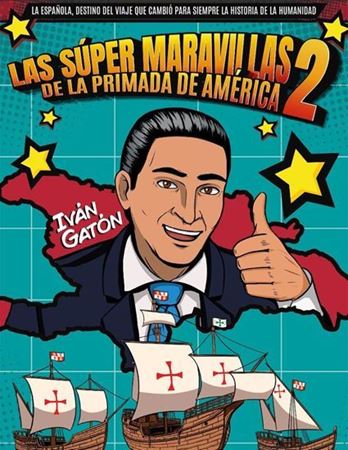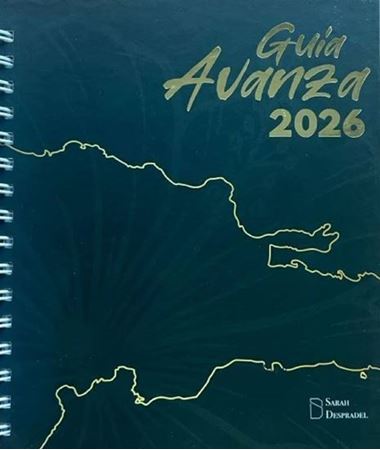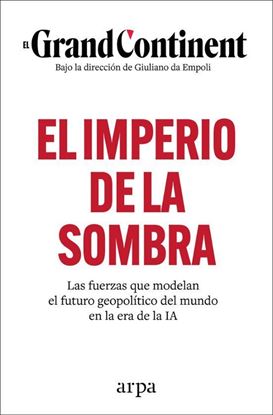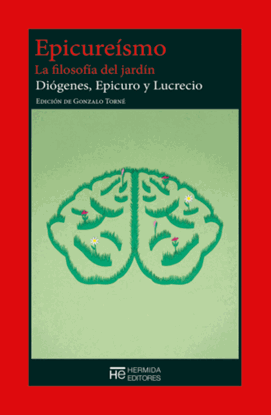

NOVEDADES
SOBREVIVIR A LA MUERTE
¿Cómo es posible sobrevivir a la muerte? Una reflexión sobre la muerte que nos ayudará a entender su sentido. Un libro profundo y reconfortante, con numerosas reflexiones para la propia vida.
Un método popular para "sobrevivir" a la muerte es simplemente no hablar de ella. Sin embargo, en su nuevo libro, Wilhelm Schmid enfrenta este tema sin rodeos.
Porque no hay escapatoria: por ahora, la muerte sigue siendo el final de la vida para cada ser humano. Lo único que varía es el momento y la manera en que ocurre. La mayoría de las veces llega demasiado pronto y deja tras de sí mucho sufrimiento. ¿Podría aliviarse este drama si aceptáramos la idea de que la muerte no es el final de toda existencia?
Wilhelm Schmid aborda con seriedad esta cuestión, que ha inquietado a la humanidad desde tiempos inmemoriales: ¿A dónde va aquel que se marcha? ¿A otra vida? ¿Existe realmente una vida después de la muerte? ¿Cómo podría imaginarse? ¿Podría ser un consuelo el simple hecho de que tal posibilidad exista?
1,450
METODO IMPACTA
Existen dos tipos de oradores: los que aceptan tener miedo y los que mienten al respecto. Hablar en público es un desafío que puede generar ansiedad, inseguridad e incluso hacernos perder oportunidades valiosas.
Ya sea en el ámbito laboral, académico o personal, la comunicación es una habilidad esencial que impacta nuestra imagen y nuestra capacidad de influir en los demás. Ante esto, tenemos dos opciones: seguir oponiendo resistencia o reconocer el miedo y aprender a usarlo a nuestro favor.
Tal vez te estés preguntando si se puede superar ese miedo. Sonia Jávaga responde sin vacilar con un sí rotundo. A través de un enfoque práctico, este libro ha sido diseñado para aquellas personas que desean transformar el miedo escénico en confianza y presencia. No se trata sólo de hablar sin temor, sino de hacerlo con impacto y autenticidad.
El infalible método IMPACTA que te permitirá mejorar tus habilidades de comunicación, transmitir seguridad y conectar con tu audiencia de manera efectiva.
Descubrirás técnicas probadas para superar el bloqueo, controlar la ansiedad y expresarte con claridad y persuasión. Si alguna vez has sentido que el miedo te paraliza, estas páginas te darán las herramientas para convertirlo en tu mejor aliado y devolverte la seguridad que necesitas para convencer a todo un auditorio.
1,450
LA GLANDULA DE ICARO
Una operación quirúrgica que extirpa el impulso sexual masculino, un tren que nos devuelve a cualquier punto del pasado, un invento genético que acerca la vida eterna... En esta mítica colección de relatos, Anna Starobinets retrata sin piedad una humanidad que se tambalea. Ciencia y religión, razón y pasiones, instinto y civilización: no hay pieza del puzle humano que escape a su mirada, a la vez devastadora y comprensiva. La glándula de Ícaro es una distopía que roza peligrosamente lo real, donde la ciencia es solo una excusa para abrir en canal a sus protagonistas y revelar sus engranajes. La obra de Starobinets es puro «horror lírico». Esta colección de relatos está repleta de pesadillas que amenazan no solo con cumplirse, sino con ser realidad en el momento en que se leen.
1,450
EL DESPERTAR DE LA REINA M.(D. Y M. 3.1)
Nismera y sus legiones gobiernan los reinos mientras el poder de Samkiel llena los cielos. Ahora que él ya no está, Nismera se esfuerza en mantener su lugar en el trono, sin importar el precio.
Tras sobrevivir a la que pensó que sería su batalla más difícil, Dianna se da cuenta de que está a punto de perderlo todo. Samkiel intenta recuperarse de sus heridas, pero una revuelta amenaza los reinos, y la única persona en la que puede confiar le mantiene alejado.
¿Podrán Samkiel y Dianna anteponerse a sus diferencias? ¿O acabarán cayendo en manos de la diosa de la guerra?
«Cuando reduzca a cenizas este mundo, cuando volváis a pintarme como la mala, recuerda que… intenté ser buena».
1,450
LA GRECIA ANTIGUA CONTRA LA VIOLENCIA
UN DEBATE SOBRE LA CRUELDAD HUMANA A TRAVÉS DE LOS TEXTOS GRIEGOS
La antigua Grecia conoció la violencia en todas sus formas: guerras, matanzas, mitos crueles... Sin embargo, esta amenaza constante siempre se vio contrarrestada por escritores y filósofos helenos, que percibían su carácter inaceptable y alzaron sus voces para condenarla sin paliativos. Junto a estos alegatos contra la violencia, se defendieron otros ideales de humanidad, de justicia, de tolerancia y de solidaridad.
A través de numerosos testimonios antiguos, Jacqueline de Romilly analiza la mentalidad griega en relación con las diferentes formas de violencia y, sobre todo, muestra la indiscutible actualidad de una herencia que nos empuja a combatir contra ella.
1,450
EL IMPERIO DE LA SOMBRA
Un manifiesto político para el siglo de la inteligencia artificial. Con contribuciones de grandes pensadores como Daron Acemoglu, Sam Altman, Marc Andreessen, Mario Draghi, Peter Thiel o Svetlana Tijanóvskaya.
En el escenario: Donald Trump, Vladímir Putin, Xi Jinping. Una fiebre planetaria -y el riesgo real de una explosión global-. El espectáculo impresiona, pero ¿qué ocurre realmente entre bastidores?.
Se está produciendo una transformación profunda del orden mundial. Desde los ideólogos del Kremlin hasta los tecnocésares de Silicon Valley, nuevas élites forjan proyectos imperiales. El poder material e intelectual que se despliega desde la Casa Blanca es colosal, y como suele ocurrir, sus impulsores lo presentan como inevitable.
Pero la virulencia con la que atacan a Europa revela que todavía la perciben como un obstáculo. Y eso significa que no hemos perdido del todo nuestra capacidad de resistencia. Ser conscientes de ello es el primer paso para imaginar una alternativa. Porque el desafío no es solo político: es filosófico y cultural. Y toda resistencia empieza por entender.
El nuevo volumen de El Grand Continent es un manual imprescindible para quienes se niegan a aceptar la 'vasallización feliz' como horizonte.
1,450
ECOS DEL OLIMPO
Desde tiempos inmemoriales, los mitos han sido espejos del alma humana: relatos simbólicos que nos ayudan a comprender lo que sentimos, deseamos, tememos o anhelamos. Pero este libro no se limita a contarlos, sino que nos invita a leerlos con una mirada profunda, emocional y transformadora, desvelando su sabiduría práctica y su asombrosa vigencia en la vida cotidiana.
Álex Rovira, referente en desarrollo personal y gran conocedor de la mitología clásica, transforma cinco relatos milenarios —Narciso, Pigmalión, Quirón, Sísifo y Fénix— en mapas emocionales que iluminan nuestras relaciones, nuestras crisis y nuestras búsquedas más profundas. Combinando sabiduría ancestral, psicología contemporánea y una voz narrativa íntima que interpela directamente al lector, revela las analogías psicológicas ocultas en estos mitos y desentraña lecciones profundamente humanas sobre la condena de la vanidad, el poder de las expectativas, la resiliencia o la persistencia ante la adversidad, que nos invita a aplicar de forma práctica y transformadora en nuestra vida.
1,450
EPICUREISMO
El epicureísmo quizás sea la empresa filosófica más decidida a liberarnos de las preocupaciones y el dolor y a procurarnos una vida serena dedica a los placeres que nos quedan al alcance de la mano. Epicuro desarrolló su filosofía en un jardín abierto a los amigos, discípulos, mujeres y esclavos. Hemos antepuesto a los textos de su propia mano la biografía que escribió Diógenes Laercio, fuente de todo lo que sabemos sobre el gran filósofo helenístico, y completado la edición con una selección de los mejores pasajes de romano Lucrecio quien por devoción a Epicuro se impuso la tarea de verter su filosofía en un imponente poema De la naturaleza.
Tristes y alegres, perturbados y serenos... quedan todos invitados a escuchar las lecciones de Epicuro en su jardín.
1,450
PEQUEÑA CRONICA. CUATRO RELATOS
El volumen Pequeña crónica. Cuatro relatos lo publicó en 1929 la prestigiosa editorial Insel de Leipzig. Era un pequeño tomo de poco más de cien páginas que aparecía cuando el nombre de Stefan Zweig era ya el más cotizado de entre los autores europeos de la época. Los cuatro relatos que contiene tratan de vidas de personas en apariencia insignificantes, pero colmadas por la pasión; en palabras de Zweig: «…tratan de destinos de gente sencilla, de esos destinos que carecen de relevancia pública pero que para los afectados son tremendamente trágicos». «La colección invisible» recrea la historia de un coleccionista de grabados antiguos de los grandes maestros de la pintura universal. En este relato Zweig reprodujo —llevándola al extremo— algo de su propia pasión por las colecciones de autógrafos de grandes literatos y músicos. Según él, «Todos los coleccionistas son hombres felices», y también lo es en apariencia el protagonista de esta historia, aunque ignore de qué profundo abismo proviene su ilusoria felicidad. «Episodio en el lago de Ginebra» relata la peripecia de un soldado ruso que por misteriosas circunstancias aparece como náufrago en las aguas del bello lago suizo: son tiempos de la Gran Guerra, y el pobre hombre se entera de repente que fronteras y leyes incomprensibles para él le impiden regresar a la patria. «Leporella» es la historia de una obtusa y tétrica sirvienta que por sumisión a su amo es capaz de cometer las acciones más reprobables. La historia parece inspirada en el mejor Poe o en el mejor Maupassant. «Mendel el librero» versa sobre un anticuario de libros omnisciente al que apodan «Libromendel», que lo sabe todo de los libros con los que comercia; desde el vienés café Gluck, donde se ubica el centro de su negocio, este viejo judío se relaciona con los bibliófilos más conocidos del mundo, hasta que la confrontación bélica entre las naciones de Europa trastocará su apacible existencia. Este nuevo volumen de relatos del gran Stefan Zweig prosigue con la iniciativa de Hermida Editores de publicar en castellano estas narraciones tal y como vieron la luz la primera vez que se publicaron en alemán: agrupadas en volúmenes autónomos tal y como lo concibió inicialmente su autor. Con este propósito han aparecido ya los títulos: Novela de ajedrez, Amok. Novelas de pasión, Primera experiencia. Cuatro historias del país de los niños, Confusión de sentimientos. Tres novelas y Miedo.
1,450




























